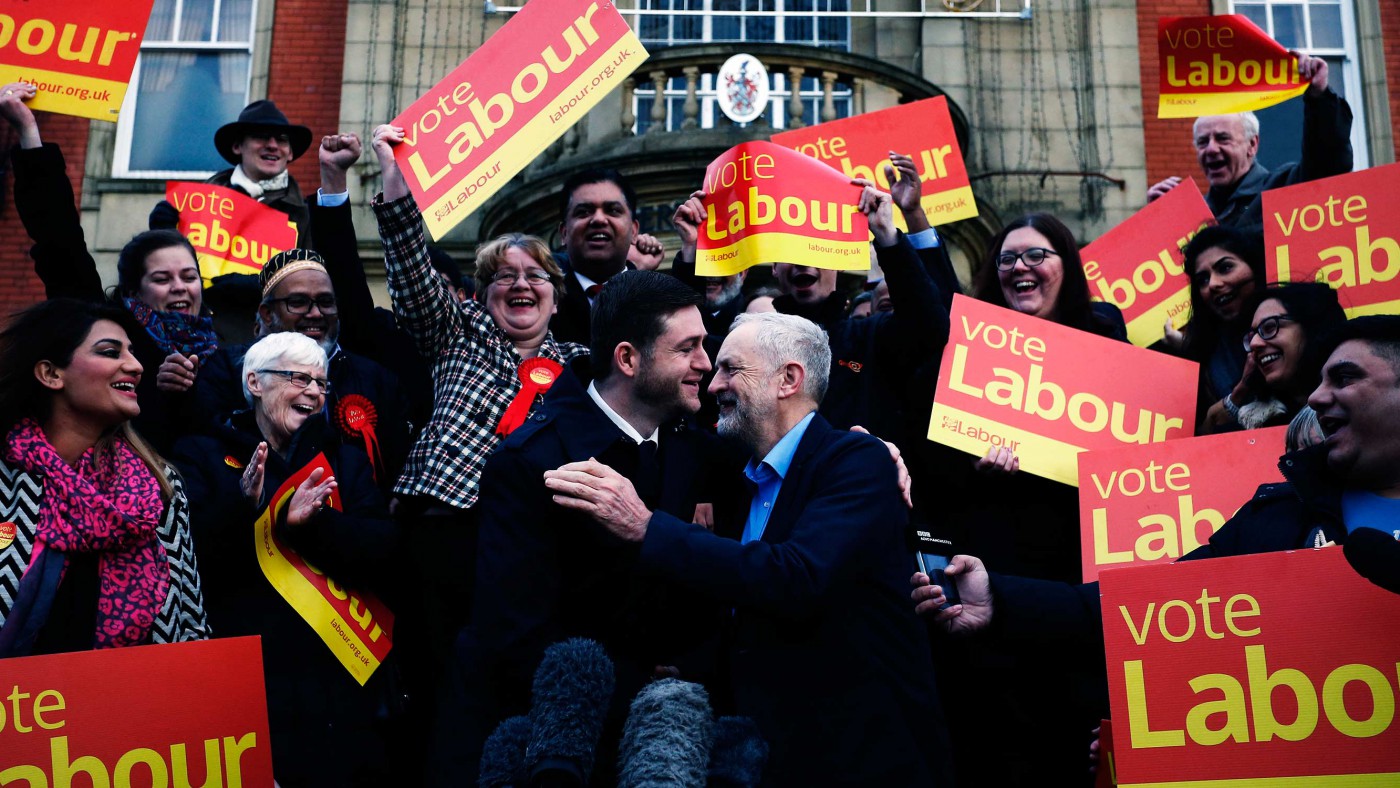In 1997, Ted Turner’s World Championship Wrestling threatened the very existence of Vince McMahon’s World Wrestling Federation. The WWF was being beaten in television ratings, pay-per-view buy rates, merchandise sales and all the other pecuniary methods of measuring success in professional wrestling. McMahon, however, is a canny operator and managed to turn around his company the following year, destroying the insurgent organisation and eventually buying it out for a paltry $2.5 million.
Fast forward to December 2015 and another McMahon, Labour’s Candidate Jim in the Oldham West and Royton by-election, may also prove to be a canny operator who spells doom for an insurgency. UKIP, who had high hopes of causing another by-election headache for the increasingly desperate Labour party, have been held off in a distant second place. McMahon stormed home with a 10,722-vote majority, smaller than predecessor the late Michael Meacher’s due to turnout but with an increased share of the vote over the General Election result.
Oldham West & Royton: the result. Labour HOLD. pic.twitter.com/h8gs97mHoa
— Britain Elects (@britainelects) December 4, 2015
Despite Corbyn-pessimist Labour voices insisting that the party has achieved the bare minimum required under the far left leader, the result is impressive when compared to the predictions of doom from the last couple of weeks. The news coming in from the ground was not good – doors slammed in the faces of Labour activists, Jeremy Corbyn forced to stay away because of the reaction his name was getting, white working class voters turning to Nigel Farage’s peoples’ army in their droves.
UKIP wanted to turn the vote into a referendum on Corbyn – Farage even offered to pay for his train ticket to Oldham – but as an excellent article from Ben Judah of Politico pointed out, many people just hadn’t heard of the Labour leader. Even a significant chuck of those who had seemed confused about his identity. “Isn’t he the presenter of Newsnight?” and “he’s the one who’s doing all them bloody cuts” were just two of the responses he received. Anecdotal evidence from activists of both parties did at least confirm that of those who had heard of Corbyn, a large amount were converting to UKIP, while a similar amount were resigned to voting for Labour regardless.
On a simple level, Labour has won because it made a very good candidate selection. The old bromide about all politics being local retains its truth, and as a highly-regarded, pro-business, reforming leader of Oldham council, McMahon had been tipped as a rising star. He was the obvious candidate to succeed the left wing Meacher, who sadly died just months after the general election (though given the party’s leadership choice in September, it remains a relief to many he was chosen).
Blairites will crow about these centrist values – as Corbynistas would have had he lost – but it is his excellent local reputation that has held up the red vote, and encouraged supporters to go out on a miserable, wet, typically Mancunian December day. The people of Oldham care not that his values may be more Kendall than Corbyn – they just know what he does works. To head off any early problems with groups such as Momentum, McMahon has embraced his leader and the deluded but buoyant supporters that elected him.
While this may not be the victory that the Labour moderates will trumpet, the neo-Militants would be well advised to take note when planning to purge popular incumbent Labour MPs for ‘right wing’ or ‘pro-war’ views. It’s a strategy that could backfire dramatically if they fail to find a socialist with the same local appeal.
For Nigel Farage’s UKIP, the result could be the first physical manifestation of the party’s difficult situation. With no general election breakthrough (and a net loss of one seat from dissolution) membership has declined, while Eurosceptic donor money is being funnelled to Leave campaigns rather than to party coffers. Farage’s U-turn on resigning as party leader has also been cited as damaging, making the party appear as little more than a personal vehicle for the genial pub-dweller rather than a serious political party.
It’s true this was always going to be a difficult seat for UKIP to repeat the heroics of Heywood and Middleton in 2014, when they came within 600 votes of Labour having concentrated most resources on Douglas Carswell’s election in Clacton. A quarter of the electorate is Asian, not UKIP’s number one demographic, and a quarter of these were predicted to determine their vote on the direction of ‘biraderi’ – the tribal ‘brotherhood’ clan system that operates in some communities. Farage has also made accusations of postal vote rigging – something that is an undeniable problem in many Asian communities such as Birmingham and Tower Hamlets.
The size of McMahon’s majority should dispel any notion that either of these issues has affected the overall result. UKIP has come a distant second and the party’s northern strategy of converting the 44 seats in which it came second to Labour lies in tatters.
The uncomfortable truth for UKIP – shedding money, members, and results to tout – is it may now be a busted flush; destined for the scrap heap of insurgent challenger parties, like the Liberal Democrats and BNP, who were ready to shake up our two party democracy by winning disaffected voters. Their only hope may now come in the form of an SNP-style momentum shift should the European Union negotiation and referendum turn out as acrimonious as the Scottish vote. Fate might save UKIP yet, but the party’s future now seems a lot more bleak than it did on the 8th May.


